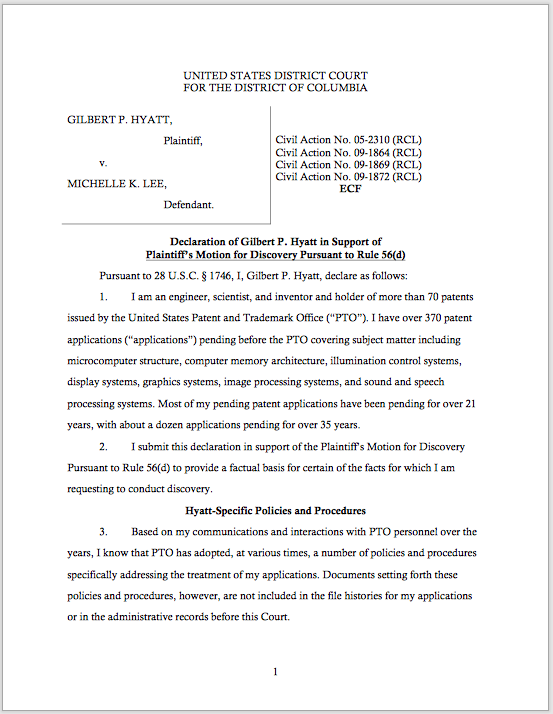The American Center for Equitable Treatment takes on the PTO’s claim that its secret “SAWS” program for blocking patents was really about “quality control”:
Further, the record reflected no statutory, regulatory, or informal authority or framework for any PTO decision on an application that is informed by the application’s SAWS status. This is because no decision or action on an application can be taken pursuant to secret annotations or designations not shared in writing with the patent applicant. 37 C.F.R. § 1.2 (“The action of the [PTO] will be based exclusively on the written record in the Office.”). According to the PTO’s own explanation, the SAWS designation, as the acronym suggests, is merely an internal “warning,” “designed as an information gathering system to apprise various areas of the PTO of the prosecution of patent applications that include sensitive subject matter.” The SAWS designation is simply designed to “help USPTO personnel in the Office of the Commissioner for Patents and the Office of Public Relations interact with the press about applications that may generate a high level of publicity.” Examination and allowance of applications are totally independent of SAWS designation, as the SAWS Report is normally prepared at the time of allowance. “The intent is to minimize any direct impact on the examination process.” In conclusion, the SAWS program had nothing to do with examination of an application on its patentability merits.
Even worse, it concludes, the PTO misled the public, Congress, and the courts about the whole thing.
Read the full post here.

